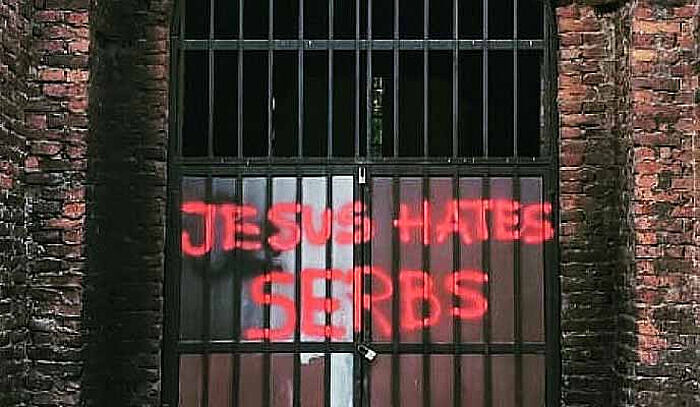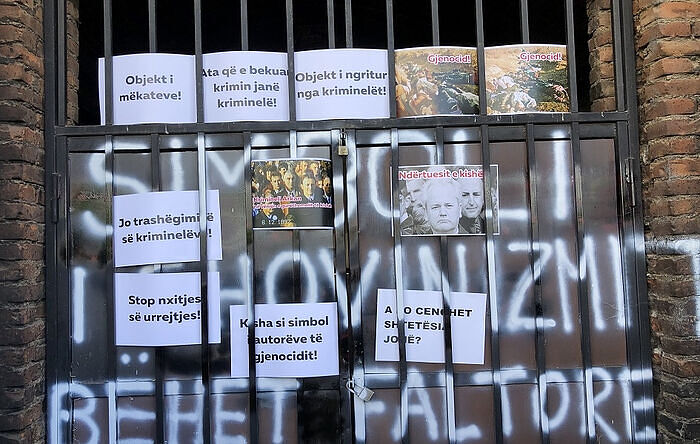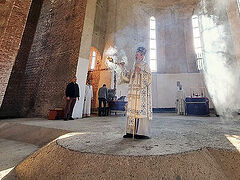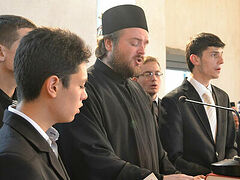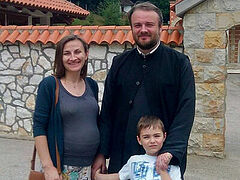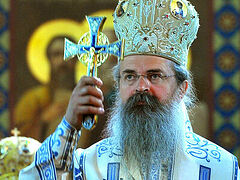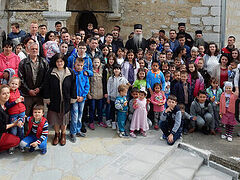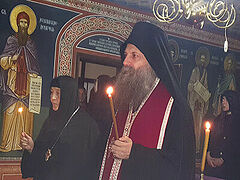Pristina, June 15, 2021
Serbian Orthodox faithful had the blessing of celebrating the Divine Liturgy in the Church of Christ the Savior in Pristina, Kosovo, for the feast of the Ascension on Thursday—the first time the Liturgy was celebrated there since 1998.
The church is unfinished, and has been the focal point of much anti-Serbian and anti-Orthodox hatred in Kosovo. And the celebration of the Great Feast last week could not go unnoticed by the Albanian Muslim majority and authorities.
Though Kosovo courts have acknowledged that the church is built on Serbian Church land, the nearby University of Pristina is dedicated to demolishing the holy site, and several students protested the day after the Liturgy.
Abusive graffiti was also found spray-painted on the church.
“Jesus hates Serbs” was written in red at the entrance to the church, reports Pravoslavie.ru.
Yesterday, the University of Pristina issued a statement expressing “deep concern” about the Liturgy, calling the church “an illegally constructed premise by the former Serbian regime at the University campus.”
“The University of Pristina will undertake all necessary legal actions to release the campus from all illegally constructed premises, including the premise where the ceremony was held,” it said, reports Balkan Insight.
The initial graffiti was erased after it went viral on social media, though it was soon replaced with, “The symbol of chauvinism has become a shrine with the blessing of [Kosovo PM] Albin Kurti,” accusing the current authorities of condoning the supposed “Great Serbian” chauvinism.
The day after the Liturgy, the Serbian Orthodox Diocese of Raška and Prizren issued a statement emphasizing that the Church has the legal right to celebrate services at its legally-owned sites.
The Diocese reminds that the church is inscribed in the Kosovo Land register as a property of the Serbian Orthodox Church, despite the legal attacks from the university.
Attempts to deprive the Church of its property and the right to celebrate the Divine services, which are frequent in Kosovo, “are sad reminders of the serious aggravation” against religious freedom, the Diocese writes, and “incite religious and ethnic hatred.”
The celebration of the Divine Liturgy was and is in no way a political act, the Church authorities emphasize.
Follow us on Facebook, Twitter, Vkontakte, Telegram, WhatsApp, MeWe, and Gab!

